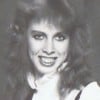Learning to really write
Where to start? Has anyone ever had a goal that they would like to achieve, but don't even know where to begin? I love reading and writing and would be so proud to be able call myself an author one day, but just don't know where to begin. I have actually jotted down character names, where the book would take place, and interesting traits about my characters, but don't really have a story to put together. Like how do I want the story to start, how will I keep it going, and will I know when to end it? Its such a long process and honestly an overwhelming one at that. Does anyone know a good book with tips on starting points? Or have any tips they would like to offer from personal experience? I would love to hear any feedback. This has been a dream of mine for quite a while now, but I really just started working on writing/blogging this past year. I can't wait to start putting the pieces together and really make something of it.
There are a ton of books out there. First decide what genre you want to write in. Mystery, thriller, crime, romance, etc. Then find a book that has a title like: How to write a mystery. How to write a romance novel. They're out there and easy to find.
Don't worry about how to keep a story going or where/when to end it. That's only going to inhibit your creativity. It sounds like you have started already with some characters and places.
I work with slips of paper. When I get an idea, I write it down on a piece of paper but I may not know where it's going to fit into the story yet. I know this sounds a bit crazy but eventually it will fit together like a puzzle. It may not work for you. Some people like to make an actual outline. Some start with knowing the ending and work backwards.
The best advice I can give is just start writing. You do need some idea of the story though. Start with a short story. It's quicker to get to the ending. I've written two novels built around short stories.
If you're really stuck on structure though, get the how to book. I find them confusing and only read one after I'd written my story to see if I could learn anything more.
You're going to make mistakes. Just do it.
Yes, I agree, but it also depends on what king of writing (and what kind of audience) you are aiming for.
One of the oldest and best guides to writing is the classic "The Elements of Style" by Strunk and White.
It is a slim volume, but the pithy suggestions are evergreen.
Write it out, whatever it is, and then compare it to the suggestions in this little book-- it pretty much insures improvement.I suggest 'No Plot? No Problem!" by Chris Batty. Chris started National Novel Writing Month (nanowrimo), where hundreds of people from around the world try to write a novel in a month. It's a fun challenge is you wanna start there. And even if you don't, but book is a great help!
The best advice I can give you is to just write whatever comes to mind. You'll soon find that your characters will start acting on their own and the story will just come to you. ^_^The best advice I can give you, from personal experience, is this:
if you have a character you like, or a setting you like, just start writing.
No plot. No storyline. Nothing. Just see where your imagination takes you. Doesn't mean you have to keep everything. Just let your imagination go crazy and write down everything you think, without considering (yet) whether or not it will work. I use this technique a lot when trying to just "get a story out" when I have an inkling on how to write but don't quite know how to get it done. Good luck from a fellow writer!
I took two creative writing classes in college - almost minored in the subject. The best advice I ever got was to just write - set aside some time, say an hour, every day to sit down and start writing whatever came into my head.
One thing that changed my writing was keeping a journal, which I did for several decades (and I'm about to start again). You'd be surprised at how helpful that is.
Also, I wrote some of my best stories around writing prompts we were given in class: words like "voice" and "home" and "dreams."
And I agree with the advice to "write what you know." And you do know more than you think you know. What are you passionate about? What experiences have you had that might be useful to others? I've personally been keeping a running list: recipes, political opinions, tips and tricks, etc.
Last thing: what was the last piece of writing that really moved you, whether fiction or non-fiction? The answer might give you some ideas about what kind of writing you'll most enjoy.thank you so much for your help. I have been writing a little each day (whatever comes to me), and it's more than I have ever written before. Things just seem to continue flowing... I am loving it.
And now you know the secret to the magic! The muse will strike if you take the first step. Check out http://www.virtualsalt.com/rhetoric.htm for some excellent technical information which you may or may not be ready for. Save the link to your favorites because someday you may want it if not now.
Good for you!!Fabulous link, couturepopcafe! I'm bookmarking it myself.
The Gotham Writer's' Workshop. Absolutely, hands down, the one I went to time after time for advice and inspiration during my five year process of writing my first (and only, to date) novel. Also, buy yourself a copy of Bird by Bird by Ann Lamont and Writing Down the BOnes, by Natalie Goldberg. You won't be disappointed on either front. Totally awesome.
Excellent! Thanks for the recommendations!
I find using mind mapping a good way to begin expanding on a story idea and generally speaking, your story will evolve from there. The mind map will help you link all your ideas together effectively. The great thing about mind mapping is it continues to develop as your story creativity develops and it can be changed if it needs to be. It will give you a visual reminder to keep coming back to and to work from as you beginning writing.
A mind map is ...
A mind map, or spidergram, is a strategy for making notes on a topic, prior to writing. It is a structured strategy, which shows the (hierarchical) relationship of ideas.
I write fiction and don't always have ALL the ideas ahead of time to map out. I make a bunch of notes on different pieces of paper according to what different characters might do and lay them all out in some order. The papers evolve, are added to, sometimes dismissed as unusable (rare - if I liked it enough to put it on paper, I'll find a way to work it into the story - this actually forces me to think outside the comfort box).
Eventually, all the pieces are used up, the puzzle starts to come together. Mind mapping, in my experience, is a living thing. It will change as your story progresses. You'll add new snippets, use them, add more, etc.
The old saying 'write what you know' has always been the best advice. Sure it's a little vague but if you look inside yourself I'm sure you can come up with several examples of personal happiness, heartache, tragedy, bliss, etc... that you can draw from to give your characters life. If that does not work then try to recall a favorite story of yours and recreate it. Check out my hub titled "How to Write the Romantic Comedy Screenplay Structure" to get an idea of what I am talking about.
The basic structure of every story ever told is the same for it's particular genre, and once you know the structure you can flesh it out with amazing stories of your own with ease.
Related Discussions
- 31
What is the best advice you would give a newcomer to Hubpages?
by Barbara Badder 15 years ago
I'm curious what the best advice you would give someone new to Hubpages. I've read lots of advice in the hubs, but please share what you think is important.
- 7
What Is The Best Advice For Writing Online?
by PhoenixV 13 years ago
What Is The Best Advice For Writing Online?What Is The Best Advice For Writing Online?
- 9
What is the best advice you have learnt from hubpages either the forums or other
by wytegarillaz 14 years ago
What is the best advice you have learnt from hubpages either the forums or other hubs?I have learnt a lot about how to use hubpages , however enjoyed learning about new places and other subjects while hub hopping , getting on new peoples sites!What have you enjoyed learning about while here ?!
- 20
Best advice for HubPage newcomers
by damiaal 15 years ago
What are some good take aways current Hubbers might offer a newbie like myself?
- 52
My Best Advice for New Writers on HubPages
by EricDockett 4 years ago
New to HubPages and struggling to figure it all out? Before you write another word, try my top three tips for new writers:1. Read the Learning Center. All of it.2. Read the Learning Center again. Seriously.3. Think about what you read in the Learning Center. The Learning Center has the answer to...
- 26
What's your best advice for beginners on hubpages?
by vhayward 10 years ago
Hi, I'm new here and I am wondering what advice you would give based on your own experiences?















